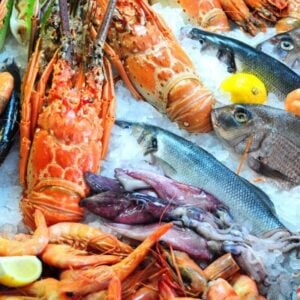The Fishery Committee for the Eastern Central Atlantic (CECAF) today opened its 10th Scientific Sub-Committee (SSC) session in Mindelo, Cabo Verde, bringing together 40 participants from 22 CECAF member countries, regional organizations, and international experts. The gathering provides a platform to review and synthesize the latest information on the state of small pelagic and demersal fish stocks, as well as artisanal fisheries, which are central to livelihoods and food security in the region.
Ahead of the session, the EAF-Nansen Programme, a strategic partner of CECAF, presented its recent work and outlined its 2026 work plan, highlighting scientific and training activities specifically designed for the CECAF region.
Opening the session, Katya Neves, Assistant FAO Representative (Programme) and Officer in Charge of the Country Office, emphasized the importance of evidence-based management. “Sustainable fisheries management requires holistic approaches integrating information provided by stock assessments, taking into account the social and economic context, as well as governance arrangements. Improving the quality of available data and information is the foundation for decision-making that benefits both ecosystems and communities, especially considering the global challenge of climate change,” she said.
The Minister of the Sea of the Republic of Cabo Verde, His Excellency Jorge Santos, underlined the value of CECAF as a regional platform. “CECAF is an indispensable platform for us. Its scientific and advisory role must continue to inform our policy decisions and guide our national strategies, strengthening our cooperation to build sustainable fisheries capable of feeding our populations and supporting our economies, today and tomorrow,” he stated.
During this session, the SSC will evaluate the latest stock assessment results, review emerging scientific research from regional initiatives and projects, and examine advancements in assessment methodologies and ecosystem approaches to fisheries management. Particular attention will be paid to the impacts of climate change on the region’s marine resources. Working in close collaboration with member countries, national research institutions, regional fisheries bodies, and development partners, the committee will formulate evidence-based recommendations to strengthen sustainable fisheries management.
A key focus of discussions will be how to improve the uptake of CECAF’s recommendations within national fisheries policies. CECAF Secretary Carlos Monteiro stressed the urgency of action: “Enough information is available to support effective management decisions. CECAF, with the support of other regional initiatives, is to provide the relevant elements and framework that countries can build on to strengthen fisheries sustainability. The reliance of this region on fisheries, the current state of resources, and the challenges posed by climate change are all elements that call for urgent action.”
The outcomes of the 10th SSC will be consolidated into a comprehensive report, which will be presented to the CECAF 24th Committee Session for review and endorsement by member countries. This process will ensure that scientific knowledge continues to guide fisheries management, reinforcing the resilience of marine ecosystems and the communities that depend on them.







